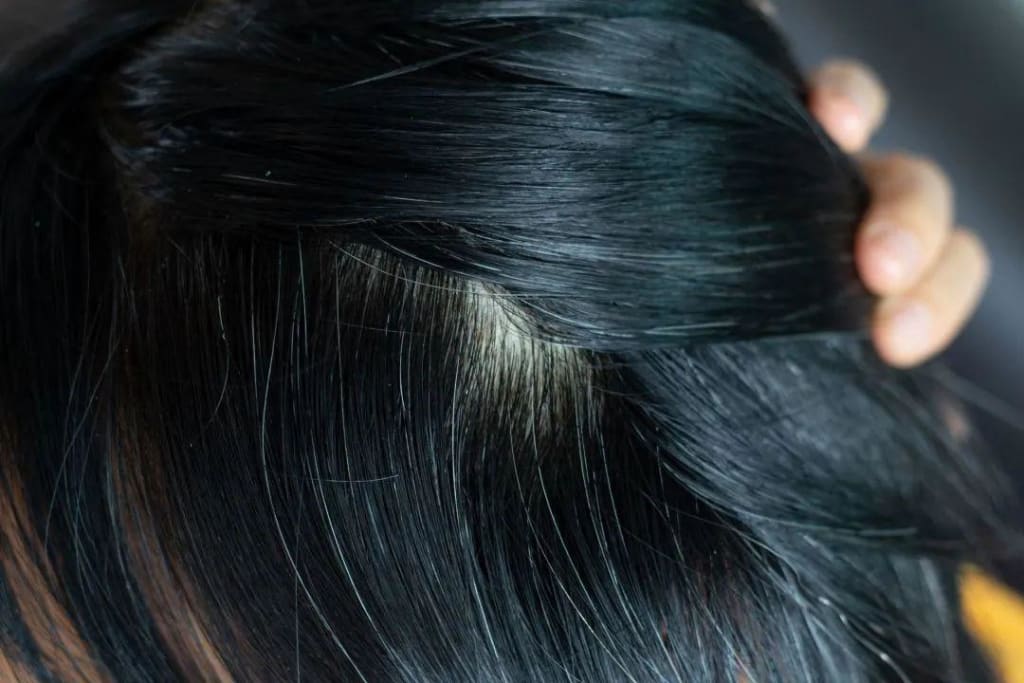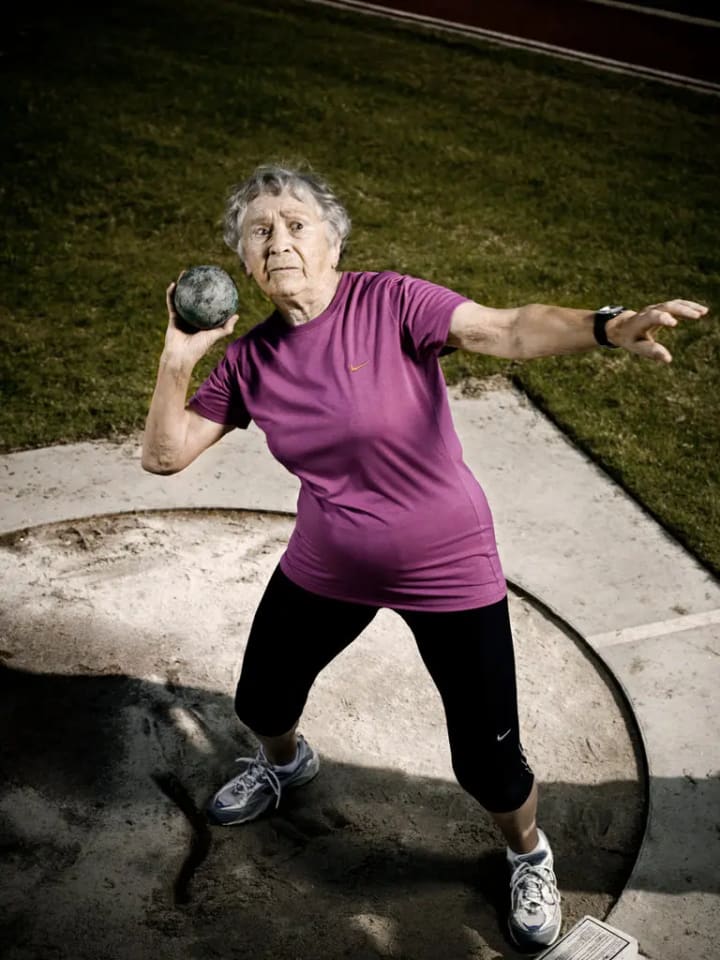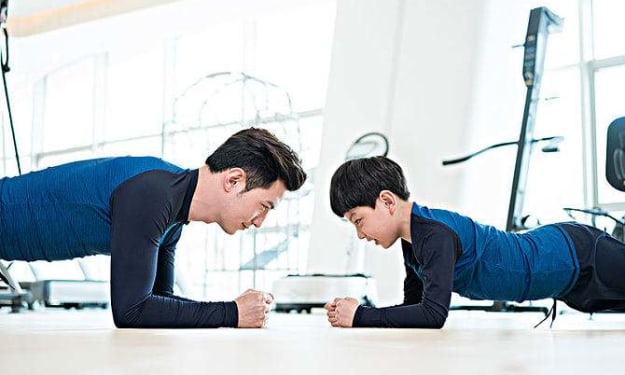The ageing of people starts at 30 ......
More mature brains actually outperform younger ones

Have you, at some point in your life, felt old?
It could be a night when you can't stay up, a few hours late and your body is falling apart.
It could be when you look in the mirror one morning and see a line of crow's feet becoming more and more visible at the corner of your eyes.
It could be the abnormal arrows on the report after a medical check-up.
It is as if aging does not come slowly, but happens in an instant. If there is a point at which this moment occurs, scientists have discovered that it is the 30s.
The human body
Goes downhill from around 30 years old
Most bodily functions, reach their peak around the age of 30.
The peak is exciting. The peak is also brutal.
After the peak, it's all about decline. Our body's organs, tissues, etc. are already on their way to a predetermined decline, regulated by genes, including skin, hair, bones, muscles, and kidneys ......
A recent study published in Nature Medicine found that aging of the body leads to 'Proterozoic' changes in the blood, with some protegees suddenly increasing at three ages: 34, 60, and 78 years old[1].
Changes in the aging-related promoter are only one indicator, but changes in the body are real and perceptible.
So how do the organs of our bodies age in our 30s? And what are the signs?
Skin.
After the age of 30, one day you may suddenly notice spots in the corners of your eyes, on your cheeks, or your chest. These are known as solar freckles ('age spots'), which usually start to appear between the ages of 30 and 50 and may become more frequent thereafter[2].
Our skin's epidermis is dermal transmitted, and from the age of 30, the distance between the dermis and the epidermis becomes larger and the epidermis is losing nutrients
From the age of 30, every 10 years, melanomas decrease by 8% to 20%, the most obvious consequence of which is the beginning of grey hair.
The brain.
At the age of 30, a part of the brain that we were once proud of is beginning to function in decline.
One study showed that the cognitive function of the human brain: peaks at the age of 35 and then starts to go downhill; after the age of 45, the rate of decline accelerates significantly[4].
Bones.
After the age of 30, bones slowly become 'brittle', losing calcium and becoming more prone to fractures.
Kidneys.
After the age of 30, the number of cells decreases, and the kidneys slowly start to 'get smaller. The kidneys are less able to filter blood and may need to go to the toilet more frequently and get up more often.
Muscle.
After the age of 30, the flesh on some people's bodies also starts to get 'looser'. The amount of muscle tissue and muscle strength often starts to decline around the age of 30.
There is also a sense of balance, eyesight, sense of smell, blood vessel flexibility, lung capacity, and blood sugar regulation ......
At the moment of reading this, most people's bodies are silently changing as they age. No matter who you are, the physical decline is inevitable as you get older.
Think Clove is going to advise people to 'resign themselves to their fate'? Of course not, there is still a chance to salvage the situation.
Most people feel that their 'body is not working
Mostly because they are not moving
After the age of 30, indeed, our body functions are irreversibly declining from a population perspective.
But the changes in organs and tissues that occur with aging, as mentioned above, affect the ceiling of human physical potential more than anything else. For example, top athletes such as So Ping Tim may be concerned about the changes age has made to their physical skills.
What most people feel as 'the body not working anymore' is far from touching this ceiling.
The decline in metabolic capacity, middle-age fatigue, brittle bones, thicker waists, and inability to run that we feel ...... has more to do with lifestyle habits.
For example, many people default to the idea that 'metabolism decreases with age, but a major study last year found that this is surprisingly incorrect. The truth is: between the ages of 20 and 50, the body's energy expenditure is stable and does not decrease; it is the amount of exercise that decreases[5].
In terms of energy expenditure for physical activity, people from the age of 30 inwards are almost 20% lower than those in their 20s.
The amount of physical activity we
between the ages of 20 and 30 is relatively stable
After the age of 30, it slips without looking back
Middle-age fattening is more a function of immobility than old age. The fattening effect of sedentary activity is clear: for every 10% increase in sedentary time, waist circumference increases by 3.1 cm[6].
Even bone density, joint health, cardio-respiratory fitness, and blood sugar control ...... are all associated with exercise and sedentary activity [6].
As we get older, the weight of life and work changes our lives in many ways: bad takeaway meals, less and less exercise, never-ending shifts, and the stress of kids, house, and car ...... They are the key to 'feeling old' in our 30s.
The good news is that some of these feelings of physical decline can be 'reversed' if we take action.
A person who exercises regularly in their daily life tends to look rosier and have better body function than someone who is sedentary.
Take for example the grandmother below 👵👵👵👵.

Her name is Olga and she has won over 750 gold medals in the Master's age group of 90 to 95 years old, including long jump, triple jump, high jump, shot put, discus, javelin, and more, and is the holder of over 30 world records. She is probably fitter than you and me in front of the screen.
Stop sitting around and get moving.
What's more, entering our 30s doesn't only bring bad news, we have an even greater asset - a wise brain.
Numerous studies have shown that a more mature brain has an advantage over a younger one. Older people have better judgment, are better at making rational decisions, and are more emotionally stable than later generations.
In addition to the physical changes, many people's fear of turning 30 is reflected in a sense of dissatisfaction with life, as if everyone else is having a good time but themselves ......
Some people may still be floating alone in a cubicle in a big city.
Some, who have just entered the workplace not long ago, are already worried about 'middle-aged unemployment'.
Some, with endless chores and noisy children, are unable to find their passion in life.
Life seems to have turned into a mess, and age is a clock hanging over your head, ticking and reminding you that life is on a downward spiral.
Age, my friends, is not the only factor that affects life.
If you are about to turn 30, don't be anxious about it; if you are in your 30s, don't let it become a shackle.
The age of 30 only means that we have reached the first stage of our lives, where we have accumulated knowledge, experience, and ability. We have the next 30 years to challenge us.
Every day, we are the youngest version of ourselves on this road of life.
After 30
Medical check-ups need to be taken seriously too






Comments
There are no comments for this story
Be the first to respond and start the conversation.